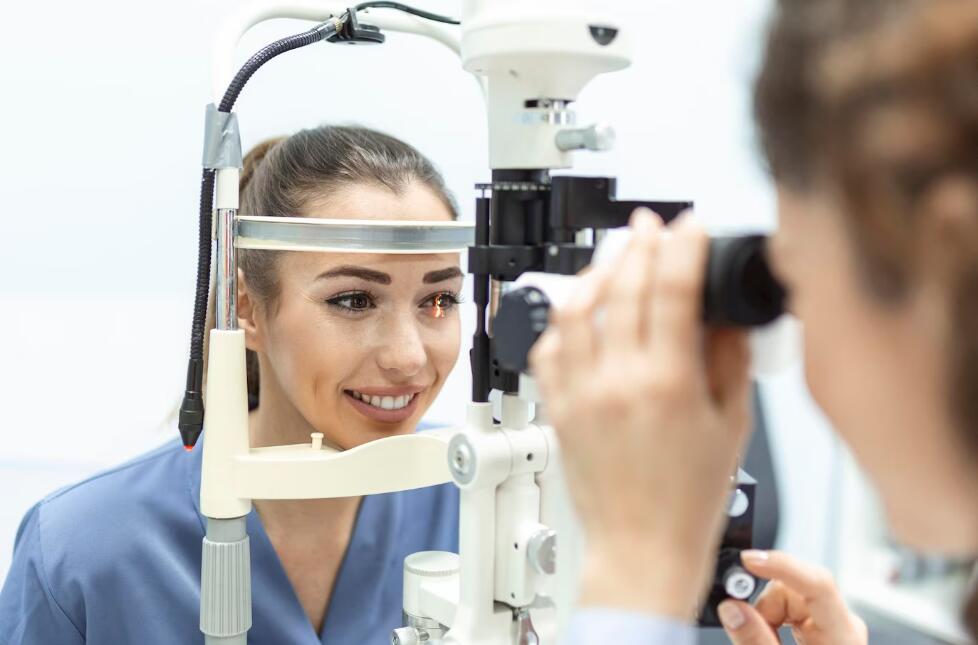Optometry is the science or profession that tries to detect abnormalities in the eyes by means of measurements.
If you have eye complaints, you can visit an optometrist, someone who is specialized in measuring abnormalities in the eyes. In general, one can without any referral to an optometrist, where one can have his or her eyes measured for defects in the eyes, sometimes for a small fee. Many people who work in optometry are now also opticians. One can thus easily have his or her eyes checked and also order the necessary correction devices. In many cases, the eyes have an abnormality that can be negated by glasses or contact lenses. When the optometrist finds out that the complaints have a pathological nature, they are referred to a general practitioner.
An optometric examination of the eyes usually consists of several parts. Often one starts with determining the strength for the lenses. This is also known as refraction . In addition, the optometrist often performs a binocular examination, which thoroughly examines the cooperation between eye muscles and the eyes themselves. Finally, it is customary to measure eye pressure. The main purpose of this is to rule out specific eye diseases.
To become an optometrist, one must complete the four-year training course in optometry. Since 2000, optometry has also been included in the Individual Health Care Professions Act, which recognizes it as a separate, professional branch of health care.
List of Acronyms Related to Optometry


